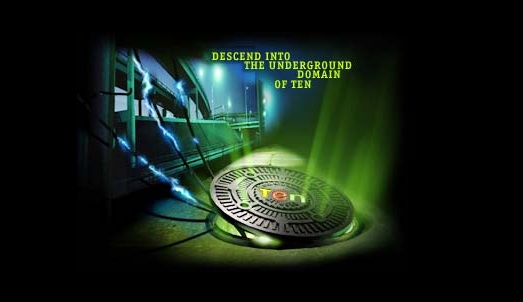In 1995 I became a virtual policeman for Total Entertainment Network (TEN). Policing game rooms for the first multiplayer commercial game network on the internet, was both rewarding and disturbing. Could not believe 12 and 13 year old kids knew such language, most of which was misspelled. Oh, yes they had to type their swear words back then.
While working on these games I came up with a solution the company’s issue of getting out server information to the call centers group. I came up with a crude local web site I wrote in HTML and JavaScript for the TEN call center group to see any server issues that I posted. Servers were not load balanced and cloud ready back then, or at least the cost of such was not feasible for the first online game network. My efforts were well received by the call center crew but not so much by management. Event though the TEN Call Center website saved time and money by pushing current server conditions to all desktops for the group, management liked the slow moving, hand delivered, memo distribution system they came up with in their business model. I was told to cease and desist at once.
I did the only thing I could do, I took my web site underground. I named it something completely obscure like TEN Documentation and hide the link in the Advertise on TEN page. Since it was a local site contained on my computer, it’s long gone. I wish I backed it up and took it with me.
History of the Total Entertainment Network

TEN web site as it existed in June, 1997
The Total Entertainment Network was founded in 1995 through the merger of Outland, the first commercial game network available on the Internet, and Planet Optigon, another small company based in Emeryville, CA. Users paid between $10 and $30 a month for access to TEN’s library of exclusive and nonexclusive games, which were generally PC titles that were adapted for online Internet play.
TEN’s most popular titles were Duke Nukem 3D, NASCAR Racing Online, Magic: The Gathering, Total Annihilation, and Dark Sun Online. At its height, there were over 25 thousand paid subscribers, with peak simultaneous usage ranging between 1-2 thousand players in the evening hours. In this era before widespread broadband availability and adoption, a key competitive advantage was relatively high quality online play through dial-up connections provided by the Concentric Network, servers distributed at the Internet peering points, as well as games that were optimized specifically for WAN latency conditions.
After the rise of free online play through such venues as BattleNet, TEN was forced to change its business model. The company switched its offering to a suite of web games and renamed itself toPogo.com. The PC gaming service was shut down in October, 1999, but the web game business grew dramatically. In 2001, Pogo.com was acquired by Electronic Arts, the dominant video game publisher of the era. Several years later, Pogo ranked as one of the top ten Internet sites in the U.S. measured by time spent online.

TENWOLFF sign off

